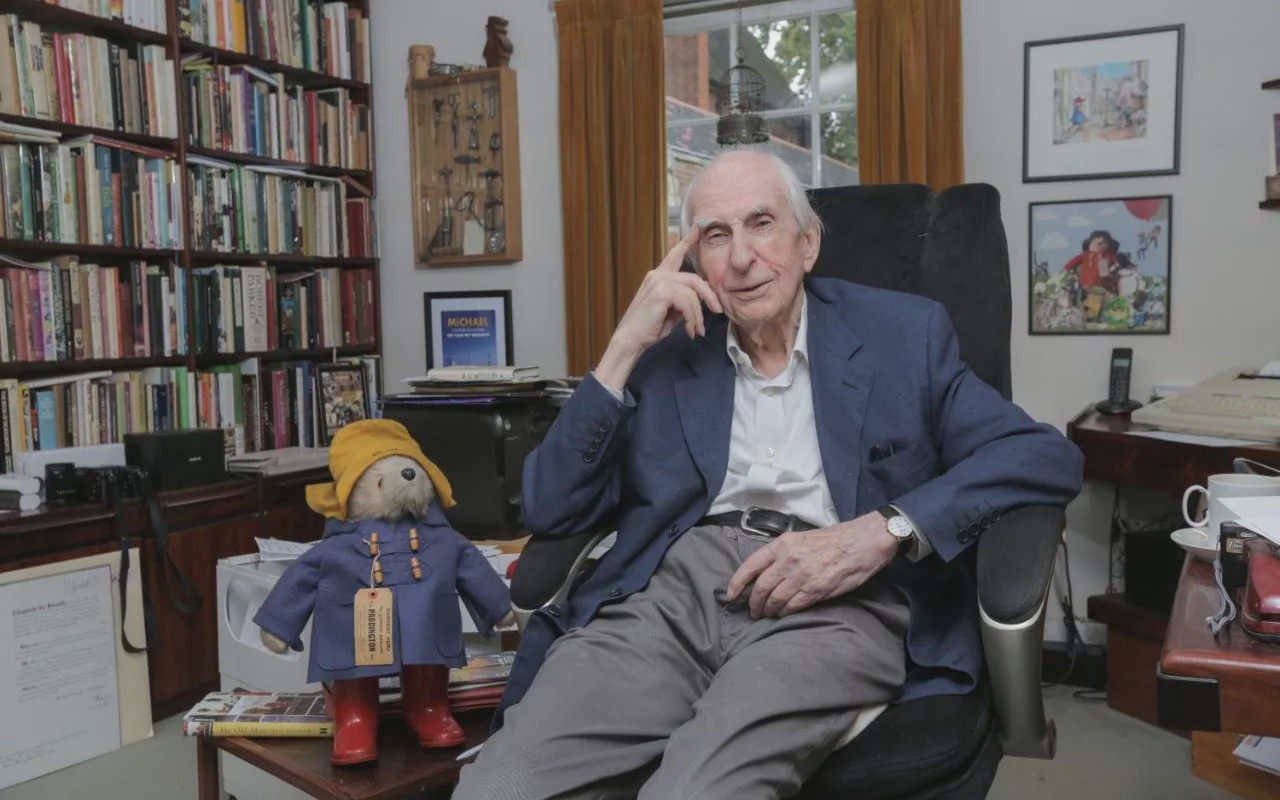essays
Electric Literature’s Best Nonfiction Books of 2015

Each year, Electric Literature polls our staff and regular contributors to pick our favorite books of the year. The resulting list of nominated books was long and eclectic. We then collected the books that received the most nominations to make our final lists. Here is our list of the top ten nonfiction books of 2015 in no particular order. These books span forms and subject matter, covering issues of race, gender, nature, children, and the art of nonfiction writing itself.
You can also read our list of the best short story collections of 2015. Best novels coming soon.
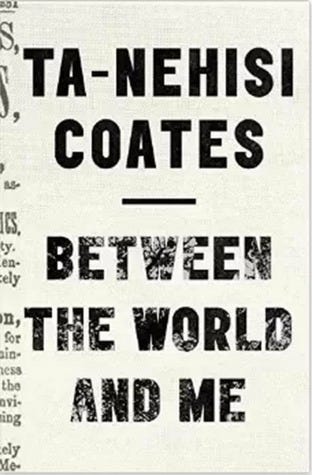
Between the World and Me by Ta-Nehisi Coates
It seems that no best-of book list this year is complete without Ta-Nehisi Coates’s Between the World and Me, and for good reason — the National Book Awards judges described it as “an essential text for any thinking American today.” However, Coates’s reflections on social and systemic racism aren’t just important lessons for today’s readers. The book is written as a letter to Coates’ son, intended to be an enduring and vital account of injustice in America that will influence and enlighten its readers for years to come.
– Benjamin Samuel, Editor-at-Large, electricliterature.com
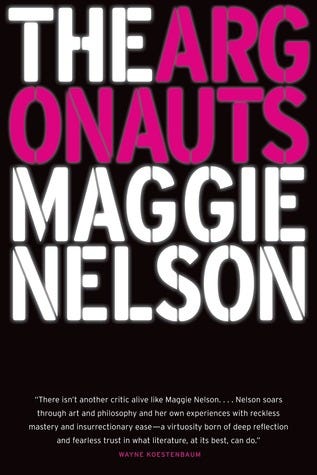
The Argonauts by Maggie Nelson
While Nelson continues to balance headier flights with bits in which she toes the brink of objecthood, The Argonauts locates its center not around thingness or the shadow of death or even in the limitations of language (though the text sheds light on each, while also digressing on the work of Eve Kosofsky Sedgwick, the lives of George and Mary Oppen, homonormativity, sobriety, and ‘performative intimacy’). The book is, at heart, about the ongoing creation of family. Standard fare? Complicating the situation of meat in The Argonauts, Dodge prefers to let body and mind exist outside the traditional male-female binary.
– Nathan Huffstutter from our review of The Argonauts
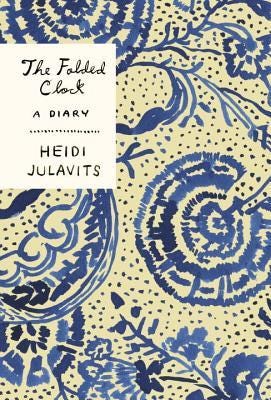
The Folded Clock by Heidi Julavits
We know Heidi Julavits as many things: novelist, essayist, sartorialist, experimentalist. With the publication of her latest book, we can now add that she is a diarist. The Folded Clock consists of diary-style entries, each beginning with the same constraint: ‘Today, I…’ True to diary form, the entries are records of daily events, but they are also meditations on loss, on memory and forgetting, on the passage of time. The Folded Clock is evidence of Julavits at her finest — an incisive and penetrating thinker, as exacting as she is forgiving in her observations about the self and the world.
– Elysha Chang from her introduction to our interview with Heidi Julavits
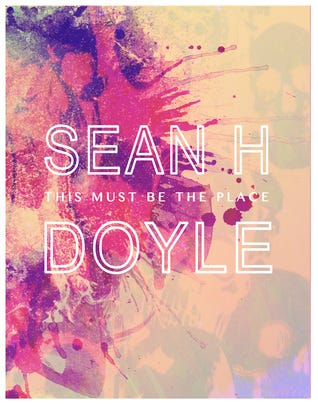
This Must Be the Place by Sean H. Doyle
Sean H. Doyle opens This Must Be the Place with a brief introduction: “These are my memories of the ghosts of myself. Be they real or not, they have made me, put me here, kept me alive and continue to do so.” In the following pages, we are taken on a wild journey via short but generous chapters that detail Doyle’s colorful life, with simple headers detailing place and date (e.g., “Outside the Marriott Hotel, Dubai, United Arab Emirates, July 1992” and “Dad’s Apartment, Sante Fe, December, 2005”). Doyle follows his memories back and forth through time, through loss and conflict and personal struggles, and leaves the reader transformed for having taken the ride along with him. Writer Jim Ruland gets it right in this description: “Sean H. Doyle is a punk rock sailor shaman with a message from way down below decks where the guys with horns and hooves go jet skiing on a lake of fire. This Must Be the Place is a ferocious testament to love and loss written with razor blades and backed with blood.”
– Catherine LaSota, Development Director, Electric Literature
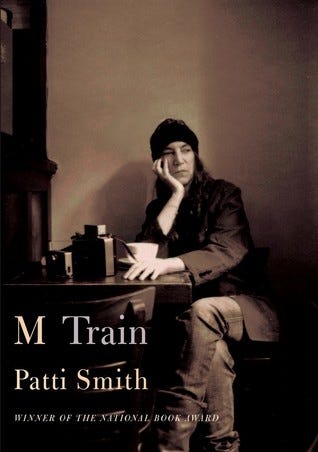
M Train by Patti Smith
Patti Smith follows up her National Book Award winning memoir Just Kids with another compelling and beautifully-written memoir about her life in New York and the arts. M. G. Lord in the New York Times Book Review called it “Rich, inventive . . . Where Just Kids charted Smith’s path from childhood to celebrity, M Train does not move in a simple arc from one destination to another. It meanders between her interior life and her life in the world, connecting dreams, reflections and memories.” Charles Finch, in the Chicago Tribune, said “It’s easy to see why so many readers say that M Train changed [their] lives. It’s every bit the book Just Kids is, full of the same lovely writing, resolute faith in the consolations of art, odd flashes of humor, rawness to memory and experience. It’s obvious why readers find a deep, deep correspondence to their own inner lives in her work.”
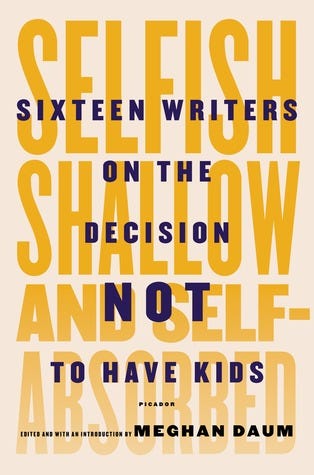
Selfish, Shallow, and Self-Absorbed by Meghan Daum
This anthology, edited by Meghan Daum, presents essays by a set of accomplished writers including Elliott Holt, Geoff Dyer, Paul Lisicky, Courtney Hodell, and Laura Kipnis, about their decisions not to have children. As Daum points out in her introduction, the sample taken here is necessarily skewed, given that all the contributors are writers, and the particular demands of being an artist might encourage a “child-free” life. However, the many personalities, circumstances, and compelling voices presented are impressively varied, and successfully complicate the false narratives and reductive judgements that many make of the “childless.” Selfish, Shallow, and Self-Absorbed is an essential read for those who are already parents as well as those who would be, won’t be or might be parents themselves.
– Halimah Marcus, Editorial Director, Electric Literature
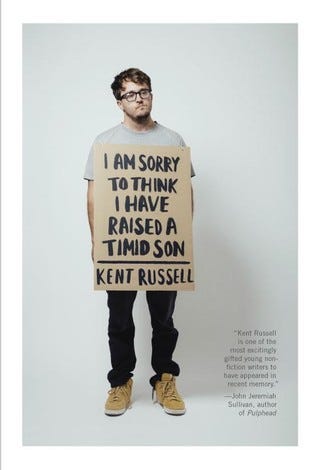
I Am Sorry to Think I Have Raised a Timid Son by Kent Russell
Kent Russell’s debut essay collection was called “a ludicrously smart, tragicomic man-on-the-edge memoir in essays” by Vanity Fair. The author Jim Shepard summed up the book this way: “For those of us who’ve been missing Hunter Thompson lately, good news: I Am Sorry to Think I Have Raised a Timid Son is as close as we’re going to get to his second coming when it comes to full-on gonzo passionate observation and self-loathing transmuted into social criticism. Its larger subject is perhaps the most toxic and entertaining of all of the can-do malevolences abroad in our land — American masculinity — but its more intimate and wrenching subject is that of one father and son, similarly self-sabotaging, masters of hurtful apathy, talkers who reject the talking cure, each shipwrecked with their shame.”
You can also read our interview with Kent Russell.
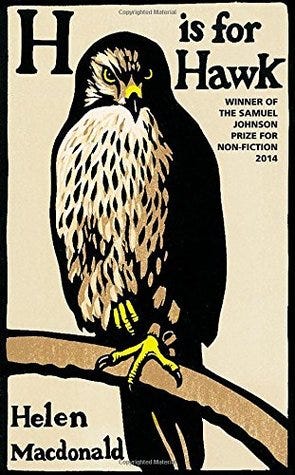
H Is for Hawk by Helen Macdonald
In her new book H Is for Hawk, Macdonald tells the story of the goshawk she acquires and trains to help her cope with the grief from her father’s death. It’s a hybrid of a book — a blend of nature writing and memoir, as well as a mini-biography of another hawk enthusiast, the fantasy writer T.H. White.
H is for Hawk won Britain’s Samuel Johnson Prize for nonfiction, and it’s now landed on bestseller lists in America. A dazzling writer, Macdonald has an almost incantatory power to evoke wonder. “My head jumps sideways,” she writes of the first time she sees her hawk. “She is a conjuring trick. A reptile. A fallen angel. A griffon from the pages of an illuminated bestiary.” The goshawk is a feral creature who leads Macdonald into the depths of her own inner wildness. Part of the drama of this story is to see how she pulls herself back from the brink once she’s become “more hawk than human.”
– Steve Paulson from the TTBOOK podcast interview with Helen Macdonald, reprinted here on Electric Literature
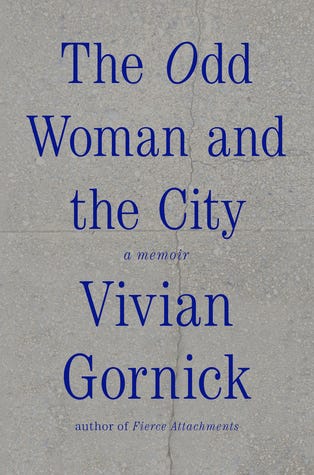
The Odd Woman and the City by Vivian Gornick
Vivian Gornick’s slim memoir, The Odd Woman and the City, is wonderfully unclassifiable. An ode to a city that’s been her home and muse for 79 years, Gornick’s New York — bursting with chance encounters, overheard dramas, lovers lost and found — is the book’s addictive pulse. On the subject of friendship, she is funny and moving and honest, tracing a long-term relationship with her friend Leonard and her twinned, contradictory impulses towards intimacy and isolation. “She is a cheerful destroyer of certainties,” says the New York Times, and it’s Gornick’s impulse to undo, to reframe, to think again, in impossibly lively prose, that makes The Odd Woman and the City such a pleasure.
– Julie Buntin
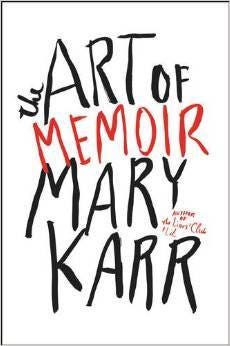
The Art of Memoir by Mary Karr
Distilling the wisdom she’s gleaned from writing her bestsellers The Liars’ Club, Cherry, and Lit, as well as the graduate course she teaches at Syracuse University, Mary Karr has written a long-awaited book on the craft of memoir-writing, and it doesn’t disappoint. The Art of Memoir engages the reader with lots of useful tips peppered with personal stories told in Karr’s trademark irreverent voice, giving you the feeling that you’ve got a good friend by your side cheering you on and willing to share the tales of her own struggles in this challenge called writing. In addition to being a memoirist, Karr is also an accomplished poet and essayist, and the writing lessons learned in The Art of Memoir can be applied to any number of literary forms.
– Catherine LaSota, Development Director, Electric Literature








